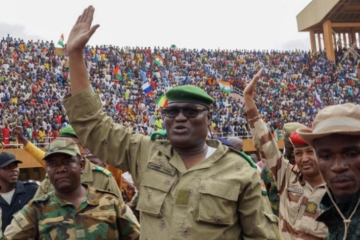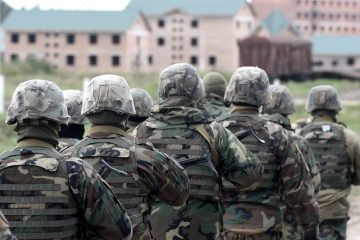
Breaking the Domino Effect: How the West Should Respond to Niger’s Coup
On 26 July, Niger’s presidential guard launched a coup against President Mohamed Bazoum, announcing their seizure of power in a televised broadcast. As the dust of the coup begins to settle, Niger — and the international community — stand at a crossroads. The military junta’s success in maintaining power is far from guaranteed and has been widely condemned. Several states and supranational organisations, including the US, France, the EU, the Economic Community of West African States (ECOWAS), and the African Union (AU) have threatened the military junta with sanctions if it does not reinstate President Bazoum, and have even considered military intervention. However, the Sahel’s track record of successful coups suggests that Niger is likely to see further democratic backsliding, …

A New Battleground: Russia’s “Grey Zone” Warfare in the Sahel
As Russia’s invasion of Ukraine enters its second year, the Wagner Group has been expanding its Kremlin-backed footprint across the globe. In particular, the mercenary network has been deploying forces in Africa’s Sahel region, revealing how Moscow is strategically blurring the line between “anti-terror” operations, security-for-resources tradeoffs, and covert political influence. In recent months, U.S. officials have accused Wagner of exploiting resources in the Central African Republic (CAR), Mali, Sudan, and beyond in an effort to fund Putin’s “war machine” in Ukraine — a charge Moscow dismissed as “anti-Russian rage”. Beyond the Ukraine crisis, however, the group’s activities and atrocities are painting a dire picture of Russia’s long-term strategy to destabilise Western relationships and gain a foothold in the African …









